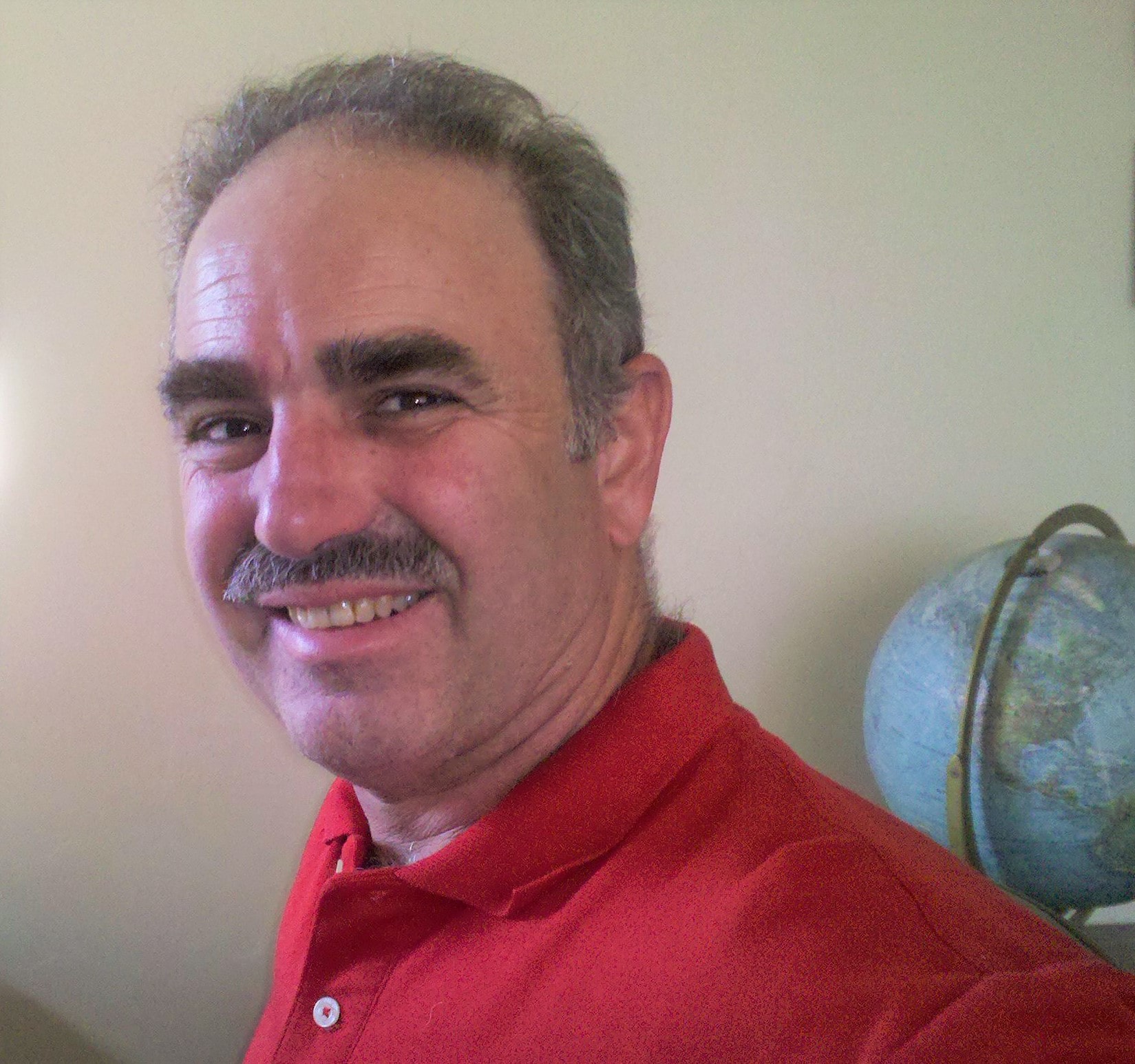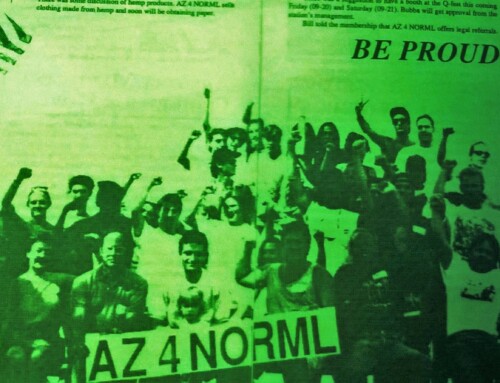The Unofficial History of AZ4NORML – Part 4
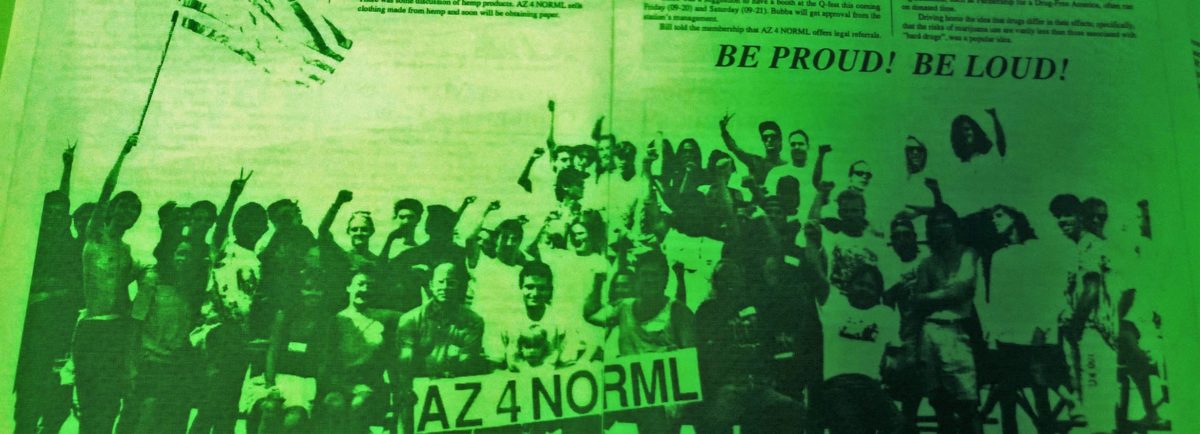
The Greening of Arizona
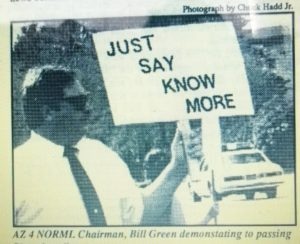
Bill Green did not win the war, but he had a knack for winning small battles along the way, ones that were always ironic in some way. For starters, he got AZ4NORML approved for community service, so people who got busted for pot, and had to perform “community service” as part of their punishment, could work off their time at an organization trying to legalize pot. And I use the term “work” loosely.
At outdoor fundraising events, Bill would always find great local bands to play for free–that was back when musicians could make money selling albums–and we never had any arrests. As long as we didn’t seem to be accomplishing anything–just gathering and airing our gripes to each other–the cops left us alone.
At one point, however, the drug warriors got the idea of doing publicity-busts at concert venues, when alleged “drug bands” would come to town…that is, any band with lyrics Sheriff Joe didn’t approve of. It started with undercover agents patrolling the parking lots, offering to sell concert-goers a joint. Once the transaction was complete, backup agents with hand-cuffs would appear from nowhere. Their cleverest ploy, however, their “Trojan Horse”, was announcing over loudspeakers that all persons entering the concert would be searched for drugs. Any drugs found would lead to arrest. Dozens of people hightailed it back towards their cars, and the cops descended on them, then searched and arrested them! Something like 34 netted. It was front-page news.
But Bill had contacts, so we fought back. “Canby”–may not be his real name–was one of them. Canby would tell Bill when the cops were going to target a concert, and Bill would organize a defensive posse, dubbed the Canby Concert Patrol. After a suitable attitude-adjustment, a dozen or so of us would hang out between the parking-lot and doors, wearing pot-leaf t-shirts and carrying signs. We would shout to the concert-goers: “Undercover cops are here! Do not buy drugs from strangers! Do not return to your car if the cops announce a search! They will count that as probable-cause and search you!” And it worked. The arrests stopped, and the headlines with them. Eventually the program was shelved. No one knows if the sheriff ever figured out where the leak was coming from.
At one particular rally on the ASU campus, Jerry Cedar’s daughter took the microphone and made an impassioned plea to the crowd for help, briefly describing the horror of having both parents locked up in the perversion of justice described in Part 2. Eventually, Bill Green put Jerry in touch with Alfredo Azula, the reporter who did the investigation and broke the story, and that’s how the Walter McKay cover-up was uncovered.
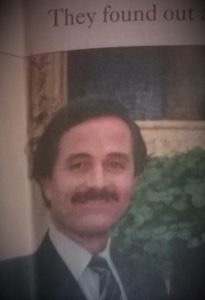
Despite the small victories, there was no visible change, except perhaps a small cultural osmosis. The McKay cover-up was uncovered, and that was the end of it. The media wanted titillating news about celebrities, not government hypocrisy. The story just died. At Jerry Cedar’s sentencing, his high-priced lawyer showed up visibly drunk. The lawyers spent an hour or more reviewing the particulars of the case: McKay did this; McKay did that; on and on. It was surreal. Everything in the sentencing review was about what McKay had done. Almost as an afterthought, it was mentioned that McKay had hired Cedar, and Cedar had done the actual labor, and had admitted his role as part of the plea-bargain.
When the judge’s turn to pass judgment finally came, he went through a long-winded, solemn blah-blah-blah, then concluded, “Mr. Cedar, I therefore sentence you to 138 years in prison.” The courtroom gasped. The Cedars were crushed. But then the judge chimed in, “Excuse me. I meant 138 months. Eleven years and six months.” The Cedars exhaled, but the mistake wasn’t funny. The judge went on to tack on fines, length and terms of probation, and sentenced Jerry’s wife to five years.

